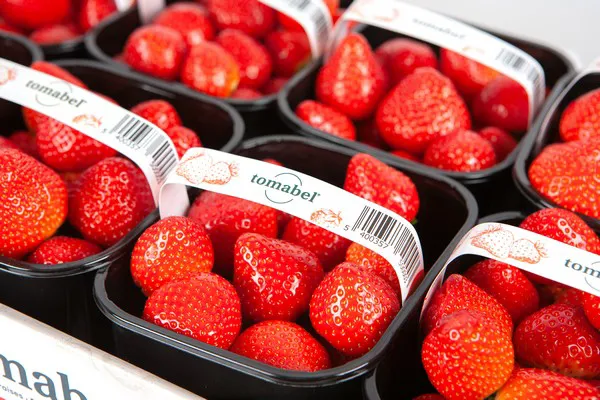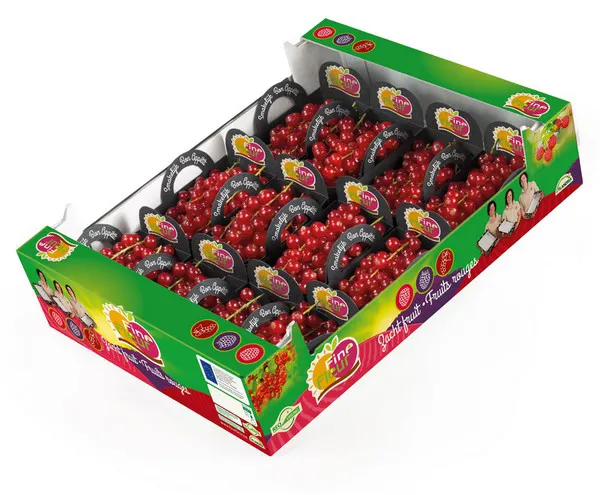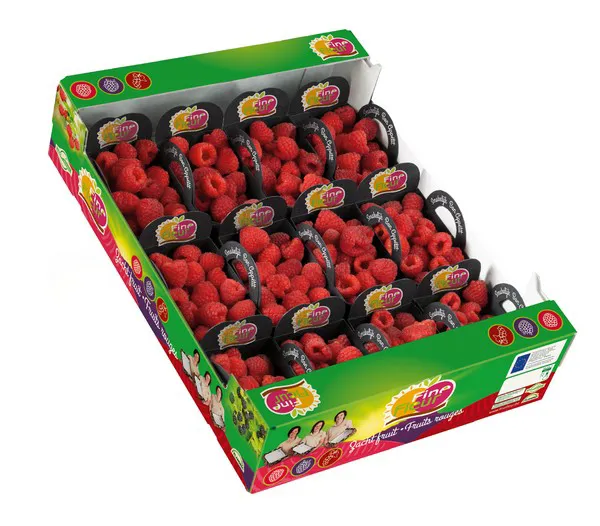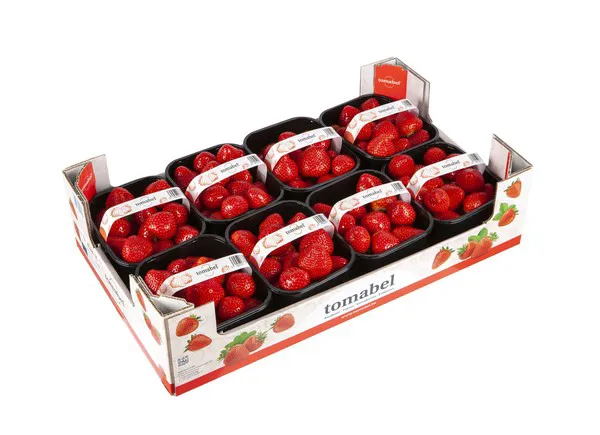"Everything's pointing to the coming period offering ideal conditions for Belgian soft fruit," says Jurgen De Braekeleer. He is REO Veiling's soft fruit product manager. "The growing conditions are almost perfect. And, as usual around this time of year, demand for soft fruit is increasing. We're at the start of what looks to be a beautiful late summer."

"Thanks to its Tomabel and Fine Fleur premium labels, REO Veiling supplies the French market with top products."
Dark time
"We've been through an expensive time," says Jurgen. The cold, dark, wet summer caused soft fruit production and consumption to lag. "The low point was from July 10 to 20. It was dark, and we had an unprecedented amount of rainfall. So, there was little demand from the market. And the soft fruit storage was less than ideal." There were shortages in the market. These, in turn, lead to higher soft fruit prices.
"Many farmers grow and plant new plants around that time. Not many could, therefore, take advantage of the good prices. That's because production is somewhat lower during that period. There's still a raspberry shortage with prices that are still on the high side. However, this also creates interesting opportunities for traders and growers. A somewhat pricey product can certainly be lucrative," explains De Braekeleer.

Favorable weather, perfect ripening, annually recurring sales boost
He says the coming period is almost perfect for soft fruit cultivation. Dry, sunny days with cold nights are expected. And daytime temperatures will not be too high either. Heat causes small woody fruits to color too quickly. They have to be harvested smaller. The berries have then had less time to ripen nicely. "It's not going to get too hot. So production won't be too rapid. The soft fruits can grow nice and firm. Cold nights allow the berries to fill with moisture. The sun sweetens them, and the drier air will reduce storage problems in the trade."

All that works out well because, every year, around this time, soft fruit prices rise. "There's a trend - the school year begins healthily. These soft fruits and strawberries sell like hotcakes. Much of our sales are in France. The French fruit and vegetable market is a demanding one. It's one of connoisseurs, and quality has a high priority. They're constantly searching for the best, consistently high-quality products. REO Veiling's Fine Fleur and Tomabel brands prove to be extremely well-suited to that market," says Jurgen.
“Belgian blueberries have no growth potential”
The demand for soft fruit climbs annually. And growers increase their production. "From when REO Veiling started, soft fruit production has only grown. But the Belgian blueberry expansion is at its end. I always advise new farmers not to cultivate these." All berries have a short storage life. That makes transportation difficult, and there is little export product. Blueberries, alone, have a two to three week storage time. They are, therefore, suitable for transport and export.
"Belgian blueberry growers now have to compete with countries like Chile and Eastern Europe. In those countries, cultivation costs are considerably lower, and farms are often much larger. Blueberry bushes grow every year, and production, therefore, automatically increases too. Belgian berries are of better quality, but buyers often opt for cheaper products. Strawberries are, by far, the most popular soft fruit variety. Raspberries follow. This group's blueberry, red currant, and blackberry shares are somewhat smaller," Jurgen concludes.

For more information: Jurgen De Braekeleer
Jurgen De Braekeleer
REO Veiling
101 Oostnieuwkerksesteenweg
B-8800, Roeselare, Belgium
Tel: +32 (0) 512 31 269
Email: jdbr@reo.be
Website: www.reo.be
